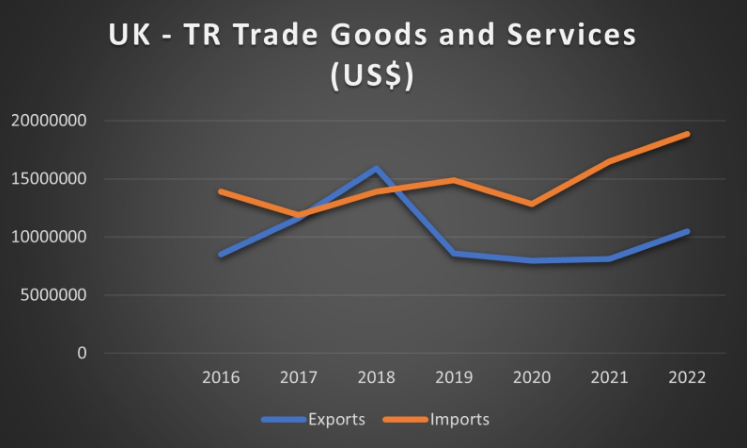BY:
SHARE:

Secretary of State for Business and Trade Kemi Badenoch is visiting Türkiye (Turkey) ahead of talks to negotiate and upgrade the current trade agreement. Following Brexit, the UK is no longer part of the Customs Union between Türkiye and the European Union, enabling tariff-free trade on most goods. The two countries agreed on a free trade agreement in 2020. This agreement only covers trade in goods, and the UK is now seeking to extend its reach to include trade in services, and digital and data trade. Türkiye is one of the government’s target markets for new/enhanced trade agreements, along with Switzerland, South Korea and the Gulf States.
A government consultation with industry, seeking input on a future trade agreement, closed on 5th January, and a feedback report is expected soon.
Airbus is celebrating a record contract with Turkish Airlines (announced in December 2023), for 220 aircraft. The wings will be constructed in the UK, and some craft will be supplied with British-built Rolls-Royce engines.
With a population of 84 million (similar to Germany), Türkiye is the world’s 18th largest economy and the UK’s 22nd biggest export market. The Turkish economy grew by 3.9% in 2023. Although trade between the two countries has been increasing, UK exports to Türkiye in 2022 were considerably below the peak achieved in 2018, while imports from Türkiye have grown rapidly, leading to a widening trade deficit.

UK Exporters selling to Türkiye can benefit from preferential import duties, provided their goods meet specific origin requirements. Details can be obtained from the government website Check How to Export Goods using the product Tariff number(s).
* In 2022, The United Nations formally agreed to a request from the Turkish government to recognise the country’s name change to Türkiye. Most official correspondence has now adopted this spelling, although many Turkish companies continue using the old form in English.
If you are interested in exploring this topic further, you might find it worthwhile to consider the training courses and live clinics offered by Strong & Herd LLP:
OneCall™ Email assistance as and when required; A one-call solution for all your import, export and customs enquiries. Export help. Import help. Customs help.
Stay informed about customs and international trade matters by subscribing to our OneCall™ service. This comprehensive offering includes a dedicated email helpline for support, timely practical updates direct to your inbox (Did You Know?), monthly UK Customs & Trade Briefings and access to an interactive members' area with an exclusive community for our subscribers.
International Trade Updates & Spotlight Newsletter
Subscribe to our free information emails covering international trade topics...












